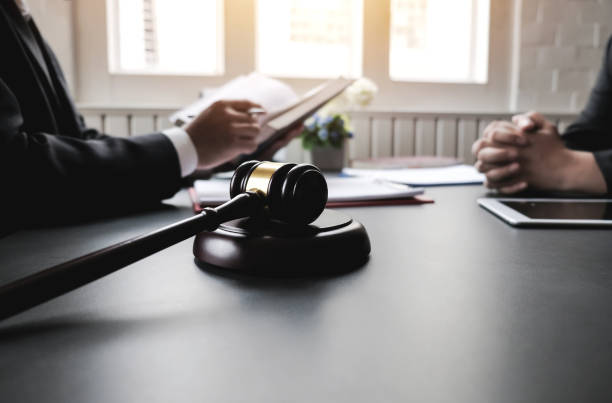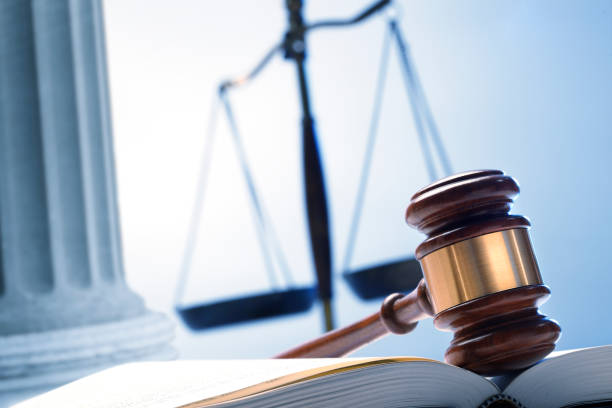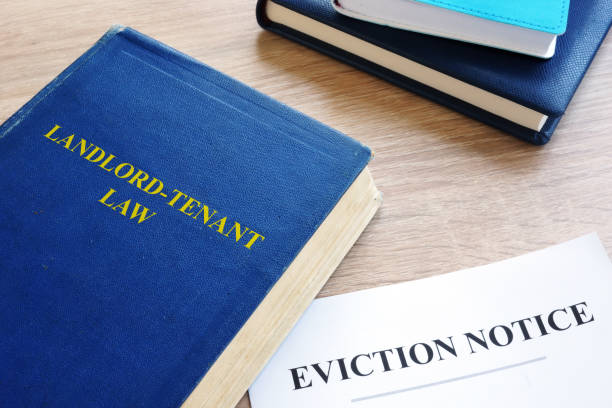
How Often Can Charges Be Dropped at a Docket Call?
In the legal system, the docket call serves as a critical junction where the status of a case is reviewed before proceeding to trial. One of the frequent queries from defendants and their families is: “Can charges be dropped at a docket call?” This article delves into this question, exploring the circumstances under which charges can be dropped at a docket call, the role of various legal players, and the procedural nuances that come into play.
What Happens at a Docket Call?
The docket call, also sometimes referred to as the “calendar call” or “pretrial conference,” is a very important time in the litigation process. This refers to the assessment of standing in cases by the court and the issuing of any needed orders for cases to move to disposition. Now let’s move on to details of what usually takes place during the docket call.
Review of Cases
A docket call is a session in which the judge calls the roll of all the cases listed for trial in the court for the day or other definite period, to ascertain their present status and readiness for trial. Operationally, the calling of a docket operates on the same basic process but revisits each case to then determine if anything has developed with the case since the last appearance.
Case Scheduling
One of the primary objectives of a docket call is to schedule cases for trial. The judge considers various factors such as the complexity of the case, the availability of witnesses, and the workload of the court when setting trial dates. Scheduling ensures that cases move forward in a timely manner and allows parties to prepare adequately.
Discussion of Plea Agreements
Plea agreements, also known as plea bargains, may be discussed or finalized during a docket call. A plea agreement is a negotiated resolution between the prosecution and the defendant, typically involving the defendant pleading guilty to a lesser charge in exchange for a reduced sentence or other concessions. The judge may review and approve these agreements during the docket call.
Consideration of Motions
Parties may file various motions before or during a docket call, seeking rulings on specific legal issues or procedural matters. These motions could include motions to suppress evidence, motions for summary judgment, or motions to dismiss the case entirely. The judge may address these motions during the docket call or set them for a separate hearing.
Resolution of Cases
During a docket call, cases may be resolved in several ways:
- Scheduled for Trial: Cases deemed ready for trial are scheduled for a future court date, allowing both parties to prepare their respective arguments and evidence.
- Plea Agreements: If the prosecution and defense have reached a plea agreement, the terms may be finalized and entered into the court record during the docket call.
- Dismissal of Charges: In some instances, the prosecution may decide to drop or dismiss charges against the defendant. This could occur due to lack of evidence, witness unavailability, or other legal considerations.
Setting Deadlines and Case Management Orders
In complex cases or cases with multiple parties, the judge may set deadlines for various pretrial activities, such as discovery, witness disclosure, and pretrial motions. Additionally, the court may issue case management orders outlining the procedural steps and requirements for each party leading up to trial.
Can Charges Be Dropped at a Docket Call?

The straightforward answer is yes, charges can be dropped at a docket call, but several conditions must align for this to happen. The decision to drop charges can be influenced by multiple factors, including new evidence, legal arguments presented by defense attorneys, or procedural issues identified by the prosecution or the judge. Key considerations influencing the decision to drop charges encompass:
Insufficient Evidence
One of the primary reasons charges may be dropped at a docket call is insufficient evidence. If new evidence comes to light that undermines the prosecution’s case or if there is a lack of evidence altogether, the prosecutor might opt to drop the charges. This decision could stem from a variety of circumstances, including witness recantation, discovery of exculpatory evidence, or the inability to meet the burden of proof required for conviction. Here’s a breakdown of how insufficient evidence can prompt charge dismissal:
| Scenario | Implication |
| New evidence contradicts prosecution’s case | Weakens the prosecution’s argument and may lead to doubts about the defendant’s guilt. |
| Lack of evidence to support charges | Indicates a failure to meet the legal threshold required for conviction, prompting reconsideration of the case. |
Procedural Errors
Another circumstance that might lead to charges being dropped at a docket call is the identification of procedural errors during the legal process. These errors could range from mishandling of evidence to violations of the defendant’s constitutional rights. Such errors undermine the integrity of the case and may necessitate the dismissal of charges. Let’s examine how procedural errors can influence charge dismissal:
| Type of Error | Potential Ramifications |
| Mishandling of evidence | Raises doubts about the reliability and integrity of the evidence, potentially rendering it inadmissible in court. |
| Violation of the defendant’s rights | Compromises the fairness of the legal proceedings and may lead to the exclusion of evidence or dismissal of charges. |
Plea Bargains
Plea bargains offer another avenue through which charges may be dropped at a docket call. In some cases, the prosecution and defense may negotiate a plea agreement wherein the defendant agrees to plead guilty to a lesser charge or charges in exchange for the dismissal of more serious charges. This mutually beneficial arrangement aims to expedite the legal process and mitigate the risks associated with trial proceedings. Consider the implications of plea bargains in charge dismissal:
| Plea Bargain Dynamics | Impact on Charge Dismissal |
| Defendant pleads guilty to lesser charge | Prosecution may drop more serious charges to secure a conviction and avoid the uncertainties of a trial. |
| Charges dismissed as part of negotiated deal | Reflects a strategic decision to resolve the case through compromise rather than proceeding with full prosecution. |
Legal Insights: How Often Are Charges Dropped?
Statistics on how often charges are dropped at docket calls are not universally compiled, as practices can vary widely by jurisdiction. However, it is not uncommon for charges to be dismissed during these proceedings due to the reasons mentioned above.
California Case (2018)
In a noteworthy case in California in 2018, charges were dropped against a defendant during the docket call phase. The dismissal occurred due to the absence of key witnesses crucial for the prosecution’s case. Without these witnesses present to provide testimony, the prosecution’s ability to prove its case beyond a reasonable doubt was significantly weakened. As a result, the charges against the defendant were dropped, illustrating the importance of witness testimony in criminal proceedings.
- Witness Absence: Key witnesses failed to appear during the docket call, undermining the prosecution’s case.
- Weakened Prosecution: Without essential witness testimony, the prosecution struggled to establish its case.
- Dismissal of Charges: The absence of crucial witnesses led to the charges against the defendant being dropped.
New York Case (2019)
Similarly, in a case from New York in 2019, charges were dropped at a docket call due to illegal search procedures conducted by the arresting officers. The officers’ actions violated the defendant’s constitutional rights, rendering any evidence obtained through the illegal search inadmissible in court. As a result, the prosecution was unable to rely on this evidence to support its case, leading to the dismissal of charges against the defendant. This example underscores the significance of procedural violations and their potential impact on the outcome of criminal cases.
- Illegal Search Procedures: The arresting officers conducted an illegal search that violated the defendant’s constitutional rights.
- Suppression of Evidence: Evidence obtained through the illegal search was deemed inadmissible in court.
- Dismissal of Charges: Without admissible evidence, the prosecution was unable to proceed with the case, resulting in the charges being dropped.
Procedural Pathways: How Are Charges Dropped?
The process for dropping charges at a docket call can be initiated by either the defense or the prosecution. Here’s how it generally unfolds:
Motion to Dismiss
One procedural pathway involves the defense filing a motion to dismiss the charges. This motion is typically grounded in legal arguments that highlight deficiencies in the prosecution’s case or procedural errors that warrant dismissal. Common grounds for filing a motion to dismiss include:
- Lack of Evidence: The defense may argue that there is insufficient evidence to support the charges, thereby compelling the court to dismiss the case. This could stem from the discovery of new evidence or the inability of the prosecution to meet the burden of proof required for conviction.
- Procedural Errors: Defense attorneys may identify procedural errors in the legal process, such as violations of the defendant’s rights or mishandling of evidence. These errors undermine the integrity of the case and may lead to dismissal of charges.
The table below outlines the key aspects of filing a motion to dismiss:
| Aspect of Motion to Dismiss | Explanation |
| Legal Grounds | Lack of evidence, procedural errors, or other legal arguments forming the basis of the motion. |
| Filing Party | Typically initiated by the defense, presenting arguments to the court seeking dismissal of charges. |
Prosecutorial Discretion
Alternatively, charges may be dropped through prosecutorial discretion. In this scenario, the prosecutor exercises their authority to file a motion to dismiss if they determine that continuing with the prosecution is not in the interest of justice. Factors influencing prosecutorial discretion may include:
- New Evidence: If new evidence emerges that weakens the prosecution’s case or raises doubts about the defendant’s guilt, the prosecutor may opt to dismiss the charges rather than pursue a potentially flawed case.
- Public Interest: Prosecutors consider the broader public interest when determining whether to proceed with a case. Factors such as the severity of the offense, the defendant’s criminal history, and the impact on victims and communities inform prosecutorial decisions.
The following highlights the key considerations in prosecutorial discretion:
| Considerations in Prosecutorial Discretion | Explanation |
| Interest of Justice | Determining whether continued prosecution serves the interest of justice and aligns with public welfare. |
| Evaluation of Case Strength | Assessing the strength of the case in light of available evidence, witness credibility, and legal issues. |
Judicial Ruling
Additionally, a judge may dismiss charges during a docket call if significant legal issues are brought to their attention by either the defense or the prosecution. The judge serves as a neutral arbiter, tasked with upholding the principles of justice and ensuring fair proceedings. Factors influencing a judicial ruling on charge dismissal may include:
- Legal Merit: The judge evaluates the legal arguments presented by both parties and assesses the merits of the case. If substantial legal issues are identified that warrant dismissal, the judge may exercise their authority to dismiss the charges.
- Procedural Integrity: Ensuring the integrity of the legal process is paramount for judges. Any procedural errors or violations of rights that compromise the fairness of the proceedings may prompt the judge to dismiss the charges.
Here’s a breakdown of the key elements involved in a judicial ruling on charge dismissal:
| Factors in Judicial Ruling | Explanation |
| Legal Analysis | Careful examination of legal arguments presented by both parties and determination of their validity. |
| Protection of Rights | Upholding the defendant’s rights and ensuring that legal proceedings are conducted fairly and impartially. |
Conclusion
While it is possible for charges to be dropped at a docket call, it hinges on a variety of factors including legal strategy, the strength of evidence, and procedural integrity. Anyone facing charges should engage a competent attorney to navigate the complexities of the legal system and advocate for the best possible outcome at a docket call.
Understanding these aspects is crucial for anyone involved in legal proceedings, as each case can bring unique challenges and opportunities at a docket call.
FAQ
A: Typically, a motion is required, either from the defense or the prosecution, but in rare cases, judges can dismiss charges on their own initiative based on clear legal issues.
A: Defendants should consult with their attorneys to prepare a solid defense and potentially file a motion to dismiss based on the specifics of their case.
A: There are no guarantees; the dropping of charges depends on the strength of the legal arguments and the evidence presented.
A: Defendants should maintain close communication with their legal counsel who will have insights based on the progression of the case and the strategies employed.


